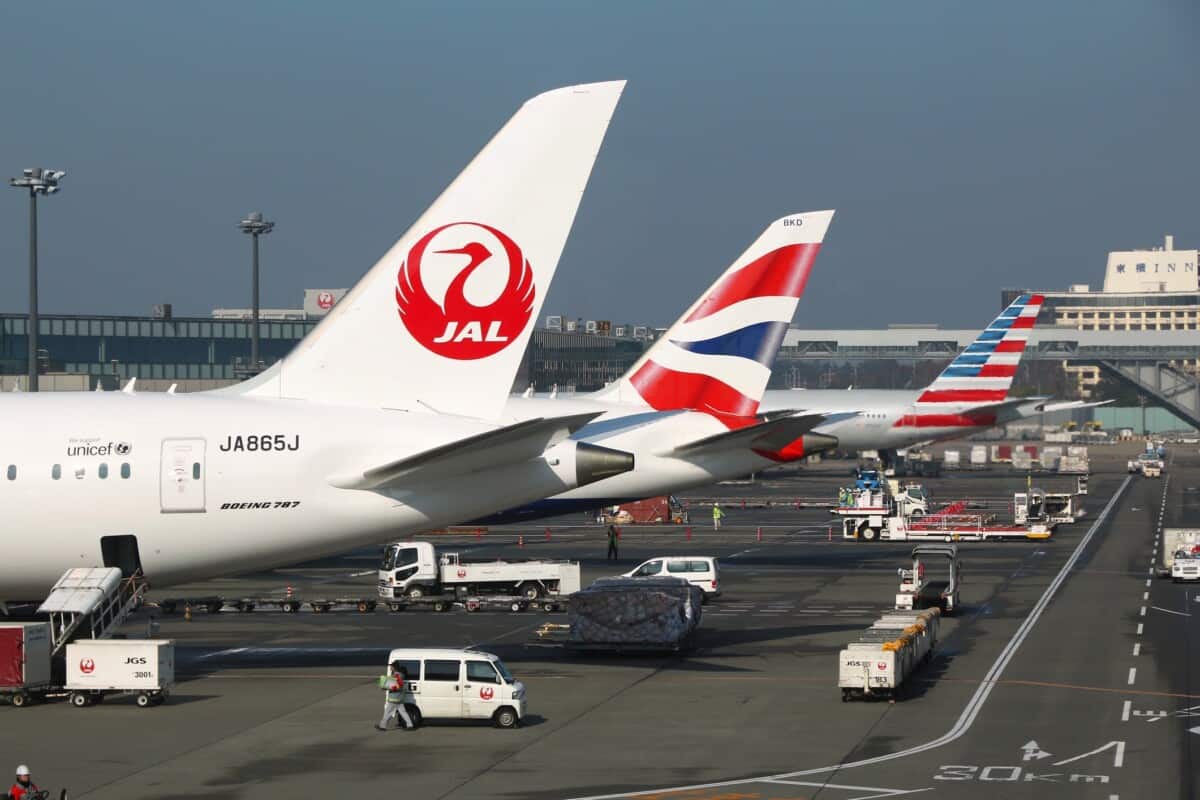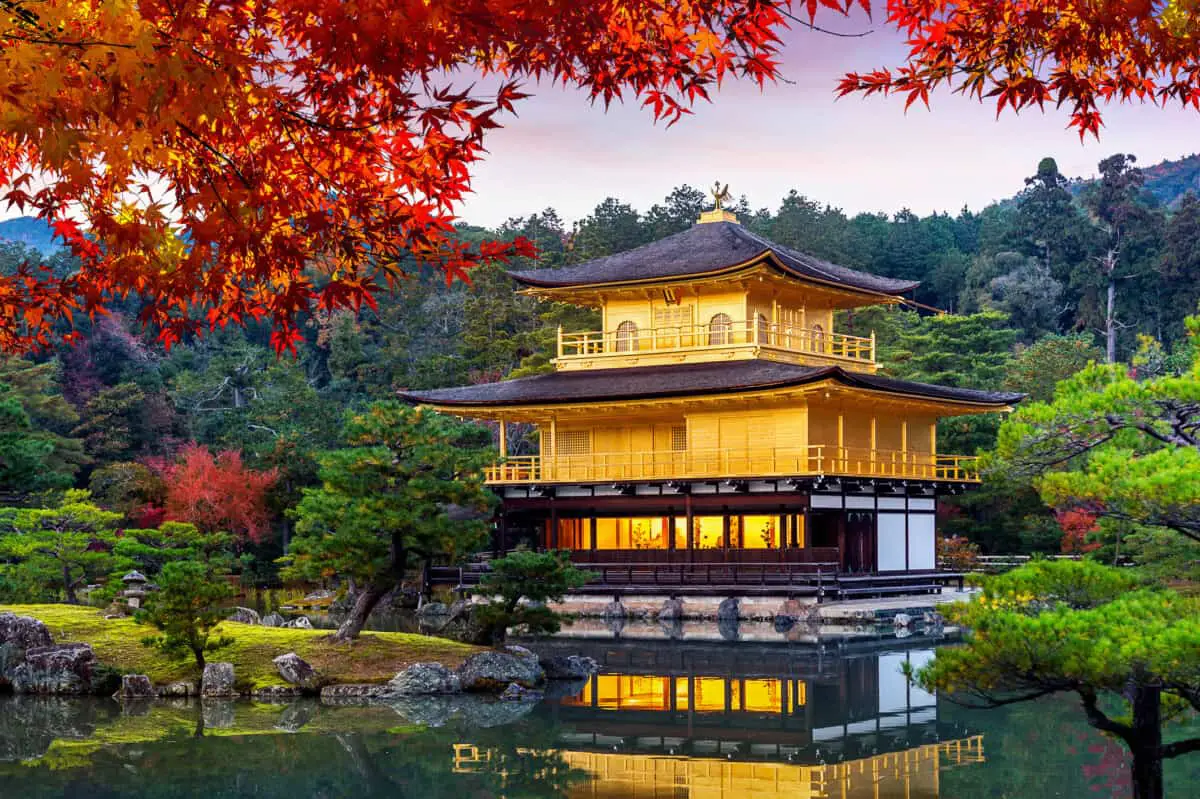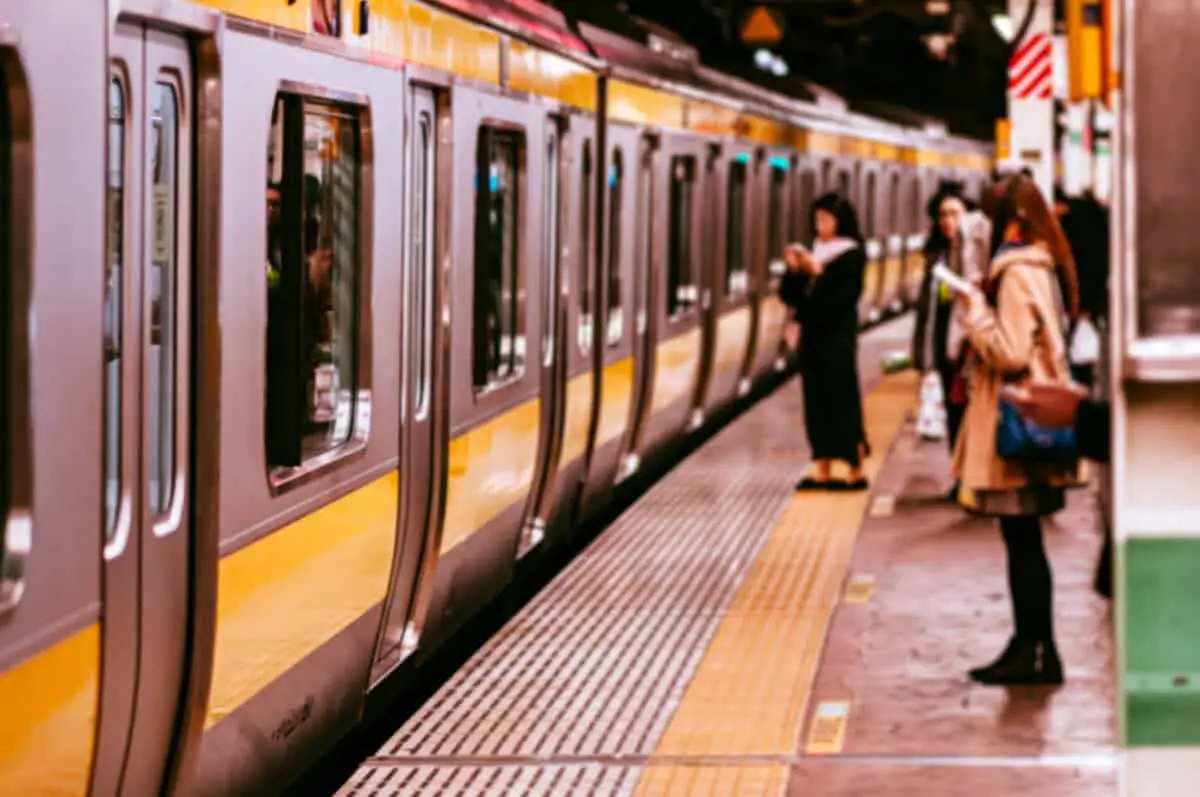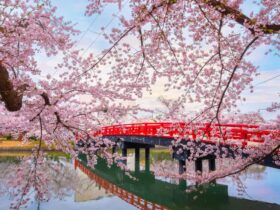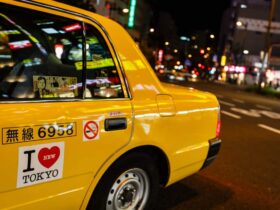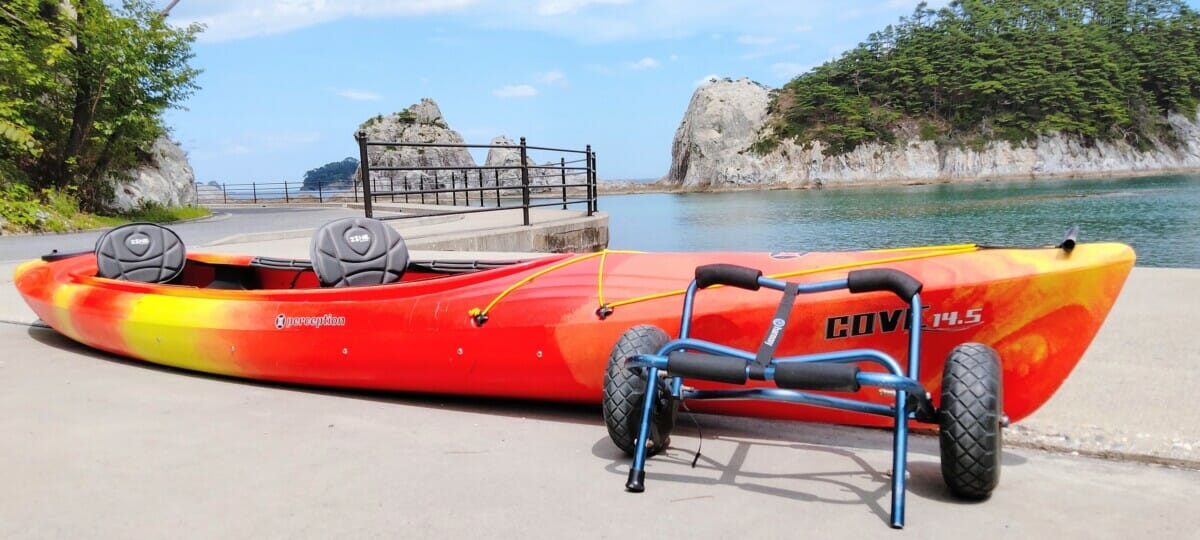Due to the new variant of covid-19 (Omicron) Japan has officially shut all of its borders for international travel. There are no exceptions to this for businesses or students.
In this article, we will talk you through everything that you need to know about the entry requirements for Japan during Covid-19, especially given the new strain of the virus. To find out more keep reading.
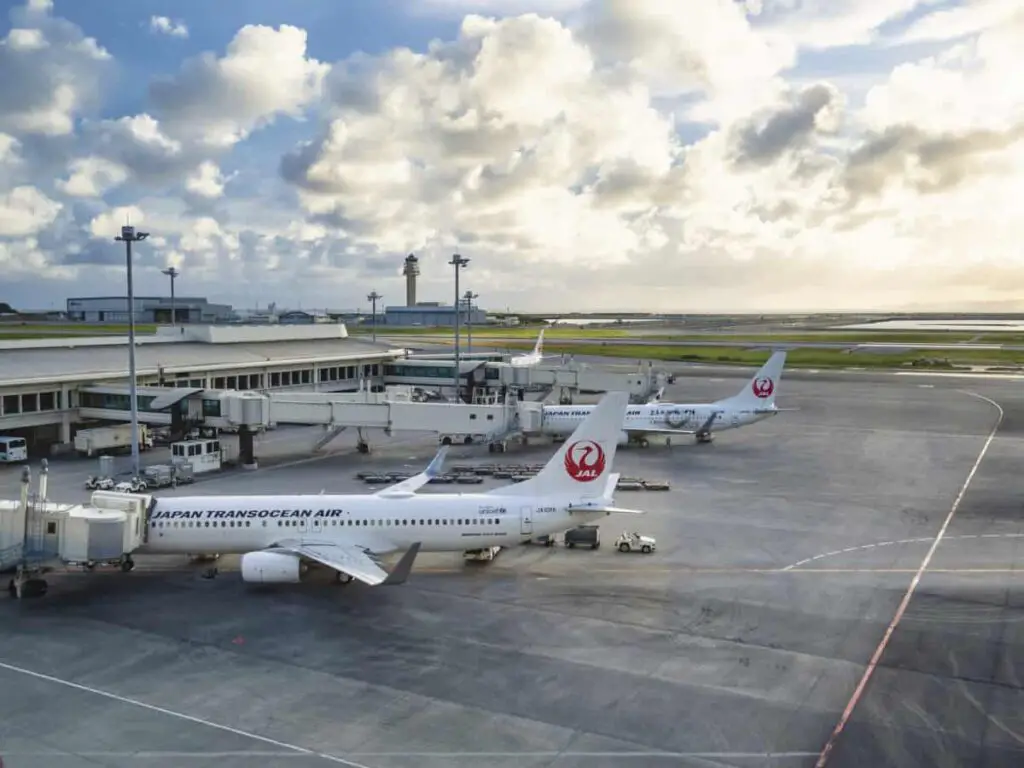
Is Japan open right now?
As of the 30th of November 2021, Japan has closed its borders to international travel, including tourists, businessmen, and tourists.
This is due to the new Omicron variant of the Coronavirus which is causing the world to reconfigure its safety measures as a precaution as we do not yet know the severity of infectiousness of this strain.
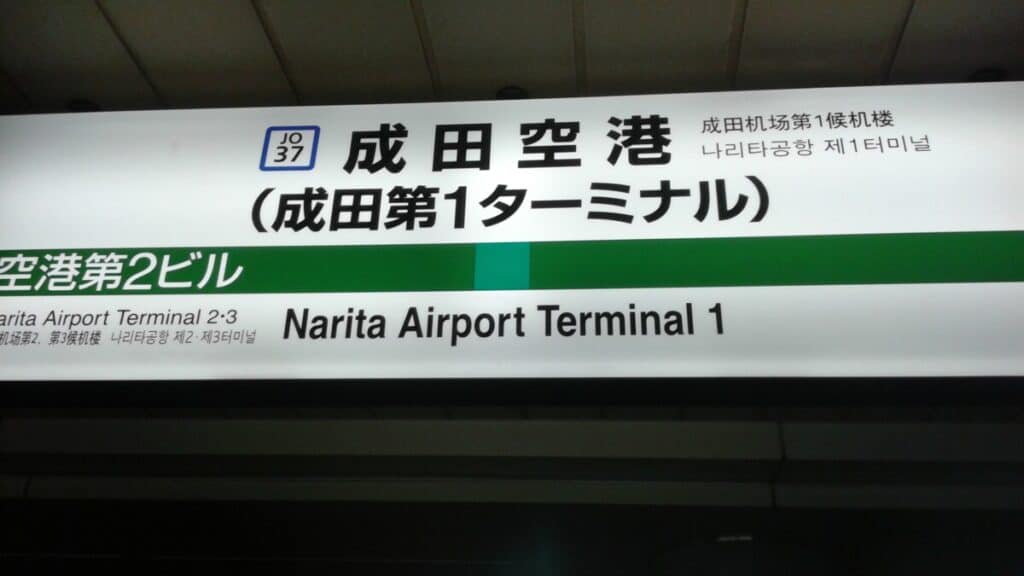
As a result of this new strain, Japan has officially closed to foreign entry as a precautionary measure.
If you are a foreign national residing in Japan, but you have previously visited any of the following countries within the past two weeks from the 2nd of December you will be denied entry. The countries on this list are:
Zimbabwe, Zambia, South Africa, Namibia, Mozambique, Malawi, Lesotho, Eswatini, Botswana, Angola.
However, if you hold the “permanent resident” status and visited one of these countries with the assumption that you would reenter Japan, you will be granted entry.
However, you will need to show a negative covid result from a test that was taken less than 72 hours before departing for Japan.
Can I get into Japan if I have a visa?
Between the 2nd of December 2021 and the 31st of December, all visas that have been issued have been suspended as a precautionary measure against the new strain of coronavirus. This includes any visas that were approved for both businesses and students alike.
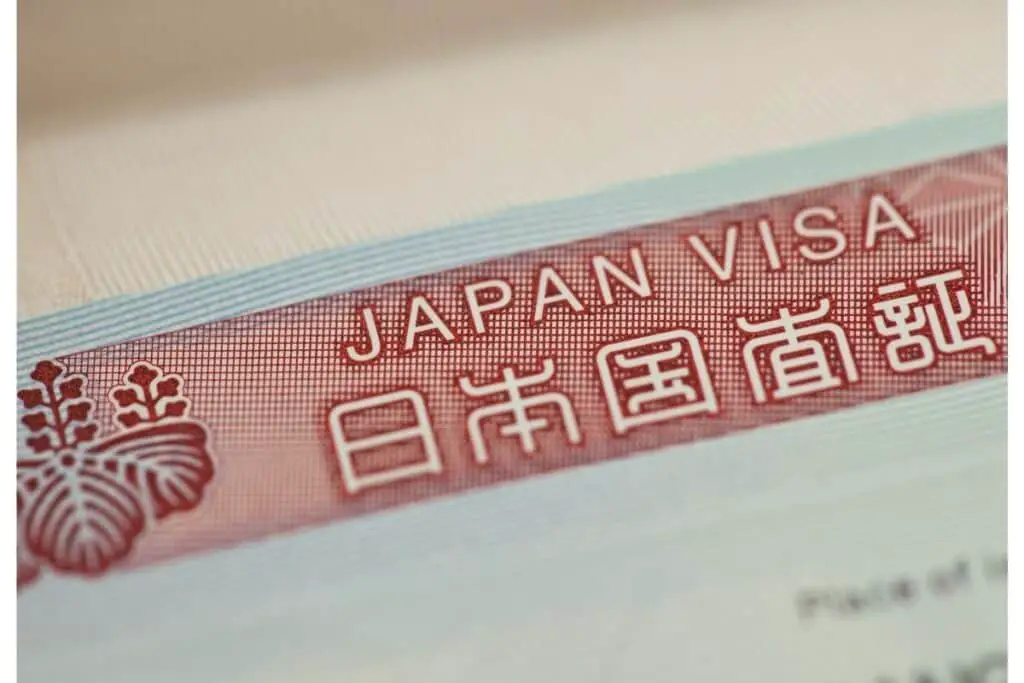
The following types of visas have been suspended throughout this time period:
Visas issued by a Japanese embassy or the Consulates General (in China or Republic of Korea)
- Single entry visas issued by the 8th of March 2020
- Multiple entry visas issued by the 8th of March 2020
Visas issued by a Japanese embassy or the Consulates General (in the Vatican, UK, Switzerland, Sweden, Spain, Slovenia, Slovenia, Slovakia, San Marino, Romania, Portugal, Poland, Norway, the Netherlands, Monaco, Malta, Luxembourg, Lithuania, Liechtenstein, Latvia, Italy, Ireland, Iran, Iceland, Hungary, Greece, Germany, France, Finland, Estonia, Egypt, Denmark, Czech Republic, Cyprus, Croatia, Belgium, Bulgaria, Austria, Andorra)
- Single entry visas issued by the 20th of March 2020
- Multiple entry visas issued by the 20th of March 2020
Visas issued by a Japanese embassy or the Consulates General (Vietnam, Thailand, Singapore, Qatar, the Philippines, Malaysia, Israel, Indonesia, the Democratic Republic of the Congo, Brunei, Bahrain)
- Single entry visas issued by the 27th of March 2020
- Multiple entry visas issued by the 27th of March 2020
Visas issued by a Japanese embassy or the Consulates General (Zimbabwe, Zambia, Venezuela, Vanuatu, Uzbekistan, Uruguay, United Arab Emirates, Ukraine, Uganda, Tuvalu, Tunisia, Trinidad and Tobago, Tonga, Togo, Timor-Leste, Turkmenistan, Tanzania, Tajikistan, Syria, Suriname, Sudan, South Sudan, Sri Lanka, South Africa, Somalia, Solomon, Sierra Leone, Seychelles, Senegal, Sao Tome and Principe, Samoa, Saudi Arabia, Saint Vincent and Grenadines, Saint Lucia, Saint Christopher and Nevis, Rwanda, Russian, Peru, Paraguay, Papua New Guinea, Palestine, Palau, Pakistan, Oman, Nepal, Niue, Nigeria, Niger, Nicaragua, Nauru, Namibia, Myanmar, Mozambique, Mongolia, Micronesia, Mexico, Mauritania, Marshall, Mali, Maldives, Malaqi, Madagascar, Libya, Liberia, Lesotho, Lebanon, Laos, Kyrgyz, Kuwait, Kiribati, Kenya, Kazakhstan, Jordan, Jamaica, Iraq, India, Honduras, Haiti, Guatemala, Guyana, Guinea-Bissau, Guinea, Grenada, Ghana, Georgia, Gambia, Gambon, Fiji, Ethiopia, Esqatini, Eritrea, Equitorial Guinea, El Salvador, Dominican Republic, Djibouti, Cuba, Costa Rica, Congo (republic of), Comoros, Colombia, the Cook Islands, Chad, Central African Republic, Cambodia, Cabo Verde, Cameroon, Burundi, Burkina Faso, Bostwana, Bhutan, Benin, Belize, Belarus, Bangladesh, Barbados, Bahamas, Azerbaijan, Argentina, Antigua and Barbuda, Angola, Algeria, Afghanistan
- Single entry visas issued by the 2nd of April 2020
- Multiple entry visas issued by the 2nd of April 2020
How many people in Japan have been vaccinated?
As of December 6th, 79% of the Japanese population has had at least one dose of the vaccine and 77% have had two doses.
The vaccine program in Japan is available to anyone who wants it and does not place restrictions upon the vaccine rollout.

When is Japan likely to reopen for international travel?
It is not certain when Japan will reopen for international travel as the guidance and advice to combat the new strain is ever-changing. This may also change with any new information, such as another variant, in which case the country will take the appropriate measures.
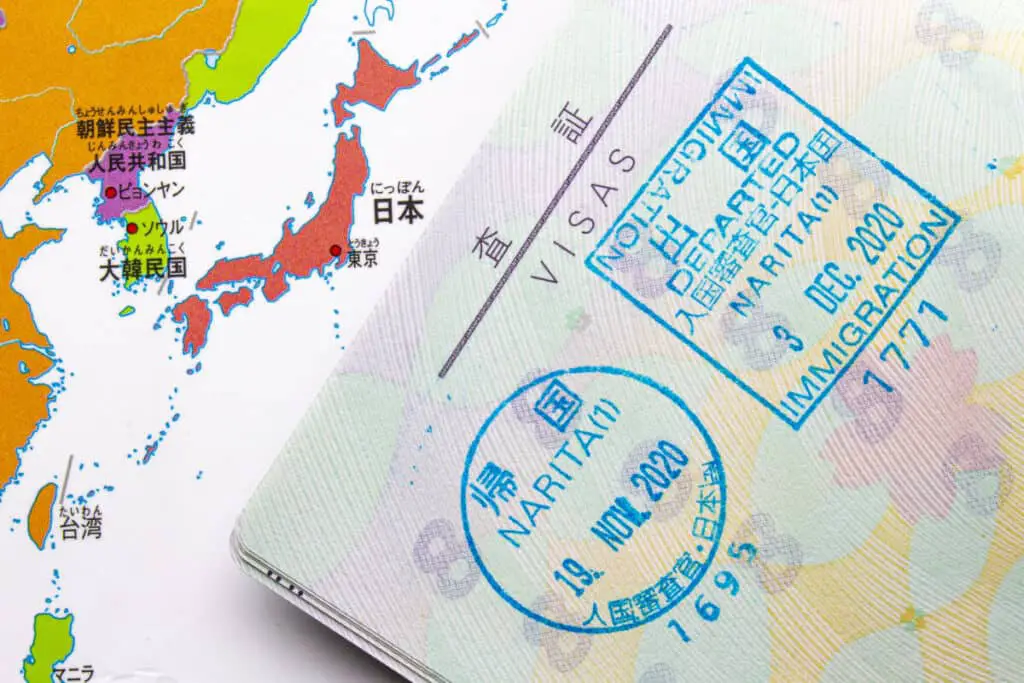
As it stands here are the experts’ opinions on when the country will reopen to tourists:
80% chance of reopening to international travel in the spring of 2022.
Be aware that this is always subject to change. Although the number of cases was very low in Japan in November 2021, meaning that the hopes were high that tourism would begin to return to normal, Japan has shut its borders as a precaution.
What will I need to get into Japan when it opens again?
We cannot say for certain what you will need to enter into Japan when the country finally reopens its borders as the entry requirements will likely reflect the situation worldwide as well as depend on which country you are traveling from, or which countries you have traveled through.
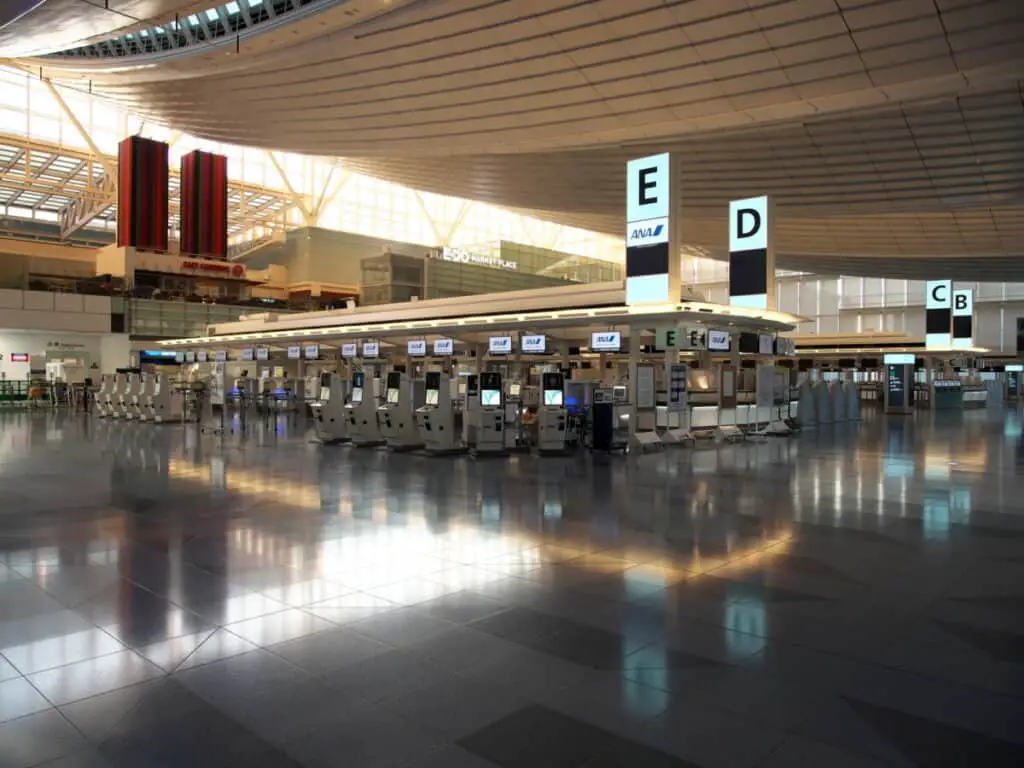
However, most likely you will need the following:
- A negative PCR test taken within 72 hours before departure
- Download the appropriate government tracking app
It is still uncertain whether the Japanese government will also require proof of vaccination to enter the country. For more information, it is best that you get in touch with the local Japanese embassy.
Are there are flights to Japan?
Despite the fact that Japan has closed its border to tourists and those with issued visas, there are still flights operating in order to help Japanese citizens and permanent residents get back home from abroad.
You can currently fly into Japan from the following locations:

North America
- Vancouver
- San Francisco
- Los Angeles
- Chicago
- Dallas
- New York
Europe
- London
- Paris
- Frankfurt
- Helsinki
- Istanbul
Oceania
- Sydney
Asia
- Bangkok
- KL
- HCMC
- Hong Kong
- Taipei
- Singapore
- Seoul
Is Japan safe?
Japan currently has a very low rate of infection and protective measures are being taken throughout the country.
However, it is expected that a significant number of safety measures will still be in place when the country opens back up to international travel in the hope of keeping its case numbers low.
What are the quarantine measures in Japan?
Japan has a number of safety measures in place to keep its case numbers down. However, there are extra measures, such as quarantine, in place for those who have traveled from abroad.
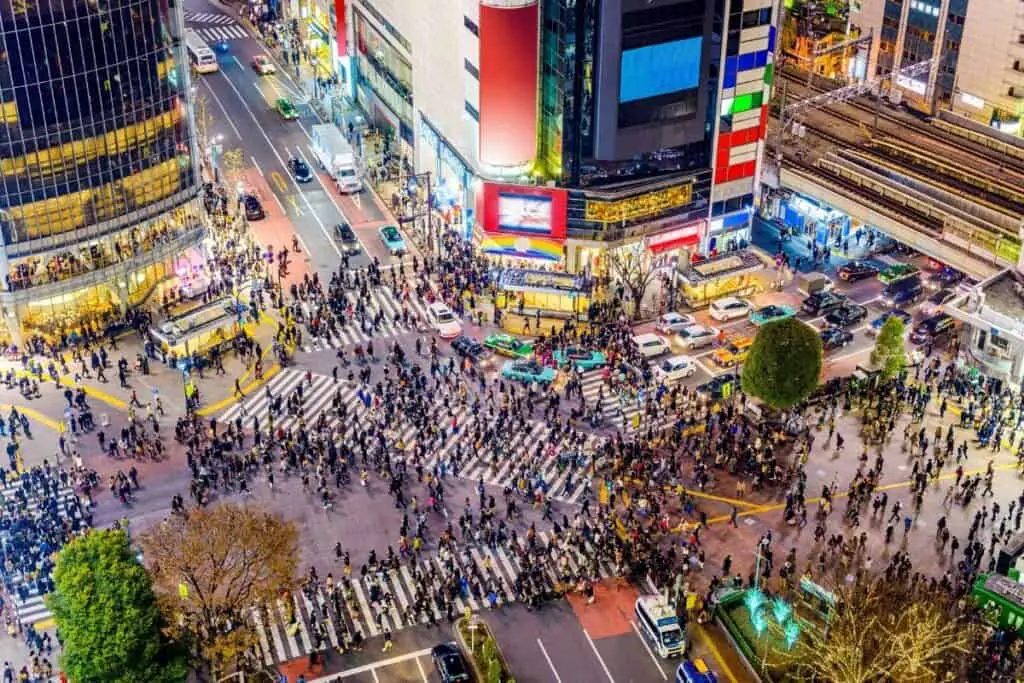
International travelers will need to stay in a designated hotel room for two weeks once they arrive back in the country. The exact location will be determined by the quarantine station chief. Travelers should avoid using public transport to reach their quarantine destination.
Visiting Japan Via GoTokyo Official Website Guidelines
There are a number of counties that have shorter quarantine times (3, 6, or 10 days) and travelers will be informed of this in advance.
US Embassy In Japan Entry Information Official Website

